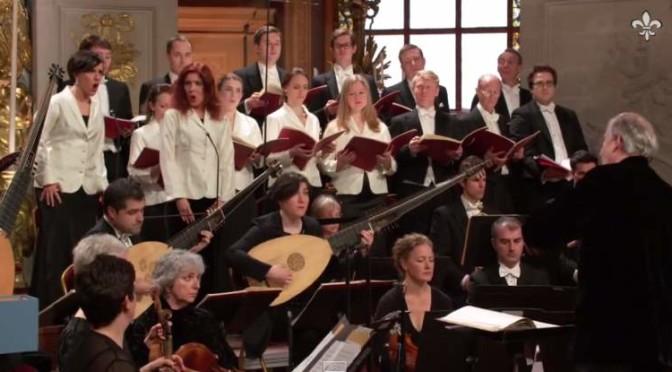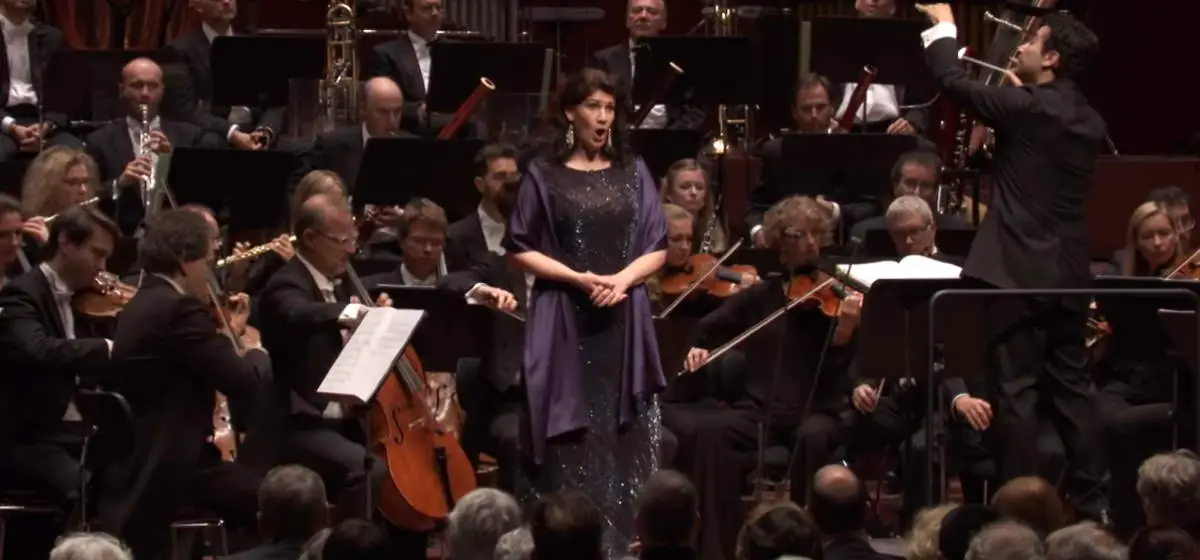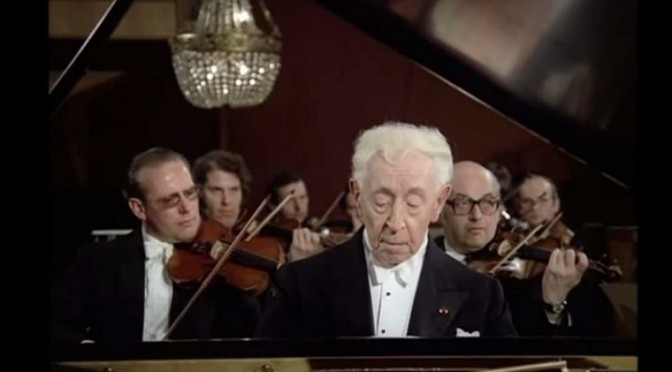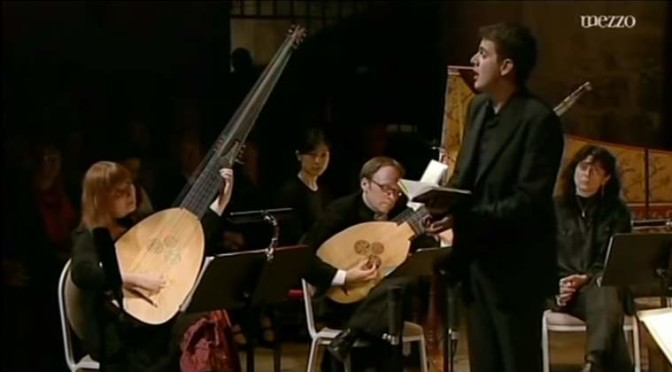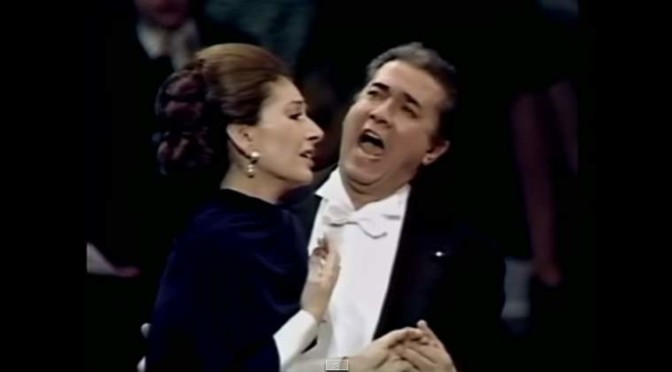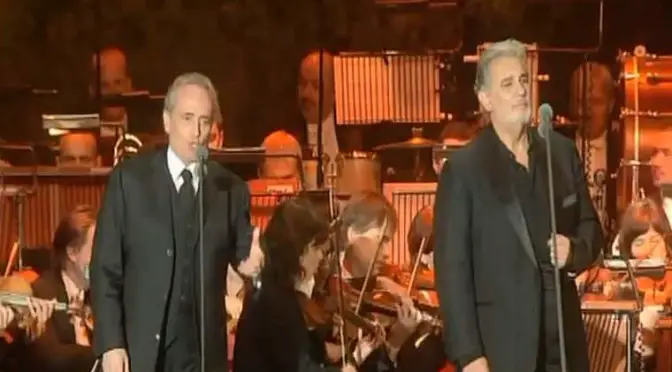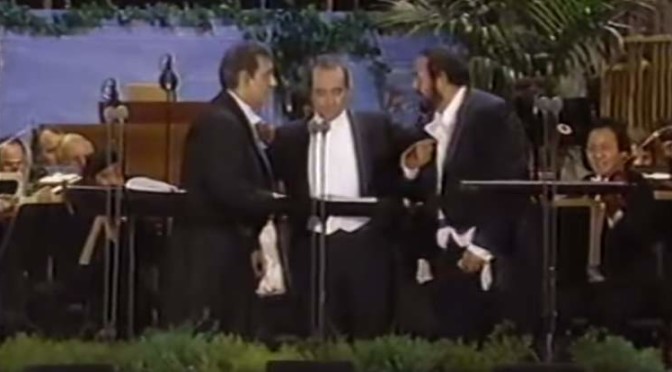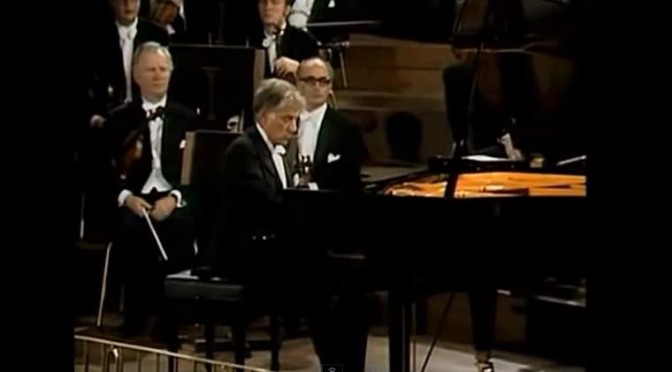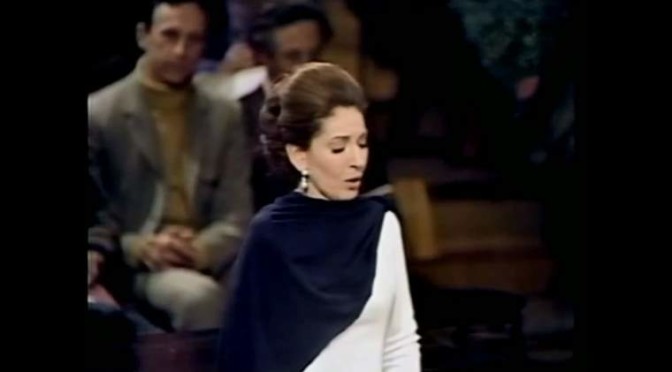Claudio Monteverdi’s Vespro
Strauss: Four Last Songs [Anja Harteros]
German soprano Anja Harteros performs Richard Strauss’ Four Last Songs (German: Vier letzte Lieder), Op. posth., for soprano and orchestra. hr-Sinfonieorchester (Frankfurt Radio Symphony Orchestra) conducted by Andrés Orozco-Estrada.
Continue reading “Strauss: Four Last Songs [Anja Harteros]”Grieg: Piano Concerto [Arthur Rubinstein]
Accompanied by the London Symphony Orchestra, Polish American classical pianist Arthur Rubinstein plays the Piano Concerto in A minor, Op. 16, by Edvard Grieg. Conductor: André Previn. Recorded in April 1975 at London’s Fairfield Hall.
Continue reading “Grieg: Piano Concerto [Arthur Rubinstein]”Philippe Jaroussky & L’Arpeggiata: Icônes du Seicento
Accompanied by the early music ensemble L’Arpeggiata, French countertenor Philippe Jaroussky sings 17th-century arias from the Italian composers: Icônes du Seicento (Icons of the Seicento). The word Seicento simply refers to Italian history and culture during the 17th century. The Seicento saw the end of the Renaissance movement in Italy and the beginning of the Counter-Reformation and the Baroque era. The word Seicento means “six hundred” (sei = six, cento = hundred). Italian art during the 17th century was predominantly Baroque in essence.
Continue reading “Philippe Jaroussky & L’Arpeggiata: Icônes du Seicento”Maria Callas’ London Farewell Concert with Giuseppe di Stefano (1973)
Maria Callas’ “London Farewell Concert” at the Royal Festival Hall with the Italian operatic tenor Giuseppe di Stefano, 1973. They were accompanied by English pianist Ivor Newton, who was particularly noted as an accompanist to international singers and string players.
Continue reading “Maria Callas’ London Farewell Concert with Giuseppe di Stefano (1973)”Plácido Domingo & José Carreras: Non Ti Scordar di Me [Don’t Forget About Me]
Plácido Domingo & José Carreras sing “Non Ti Scordar di Me (Don’t Forget About Me)”, for a tribute to their friend Luciano Pavarotti. Prague Philharmonic Orchestra conducted by Eugene Kochn.
Continue reading “Plácido Domingo & José Carreras: Non Ti Scordar di Me [Don’t Forget About Me]”“O Sole Mio” from The Three Tenors [1994]
The Three Tenors (Luciano Pavarotti, Plácido Domingo, and José Carreras) sing the famous Neapolitan song “‘O Sole Mio”. From the Three Tenors Los Angeles Concert in 1994. This song is not included in the concert DVD.
Continue reading ““O Sole Mio” from The Three Tenors [1994]”Beethoven: Piano Concerto No. 1 [Leonard Bernstein]
Accompanied by the Vienna Philharmonic Orchestra (Wiener Philharmoniker), the American composer, conductor, author, music lecturer, and pianist Leonard Bernstein performs Ludwig van Beethoven’s Piano Concerto No. 1 in C major, Op. 15. Bernstein also conducts the Vienna Philharmonic. Recorded at the Wiener Musikverein in 1970.
Continue reading “Beethoven: Piano Concerto No. 1 [Leonard Bernstein]”Maria Callas sings “Voi lo sapete” from Cavalleria rusticana
Maria Callas sings “Voi lo sapete”, a soprano aria from Cavalleria rusticana, an opera in one act by Pietro Mascagni to an Italian libretto by Giovanni Targioni-Tozzetti and Guido Menasci, adapted from a play and short story written by the Italian realist (Verismo) writer Giovanni Verga. Piano: Robert Sutherland.
Continue reading “Maria Callas sings “Voi lo sapete” from Cavalleria rusticana”Two versions of the Polovtsian Dances (Borodin)
Two beautiful versions of the “Polovtsian Dances” or Polovetsian Dances, from an exotic scene in Alexander Borodin’s long opera Prince Igor (premiered in 1890).
Continue reading “Two versions of the Polovtsian Dances (Borodin)”